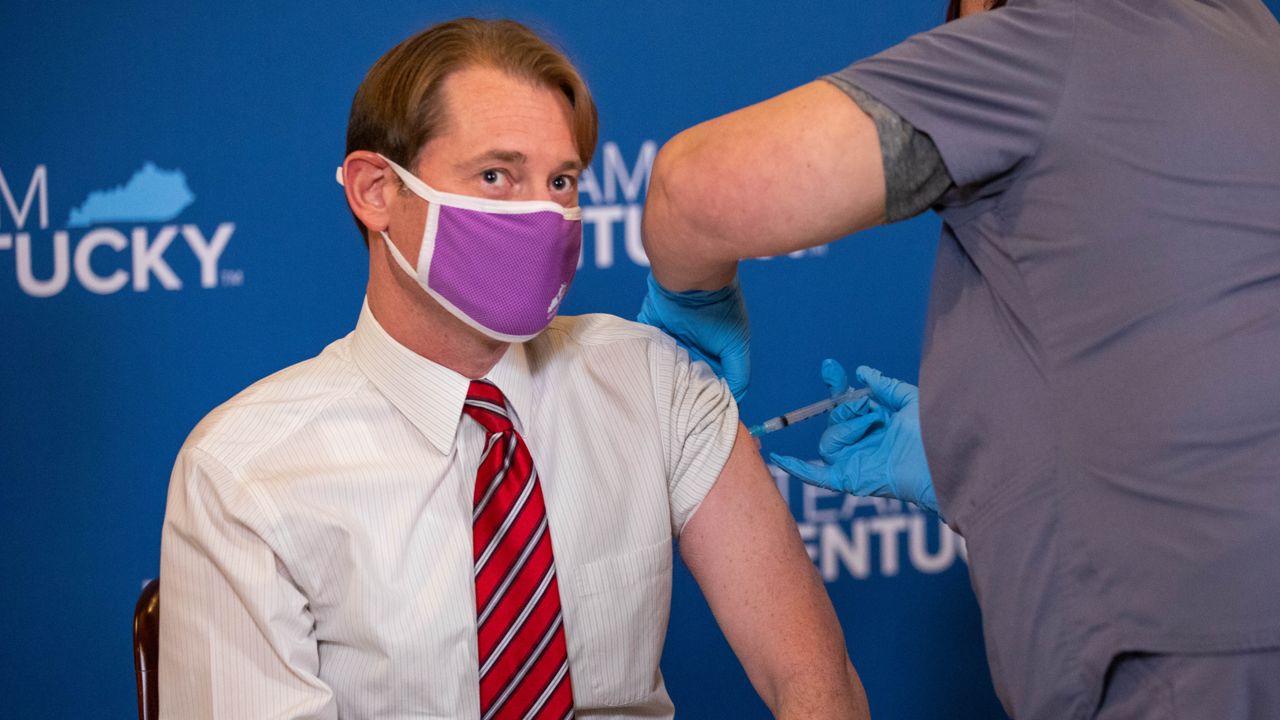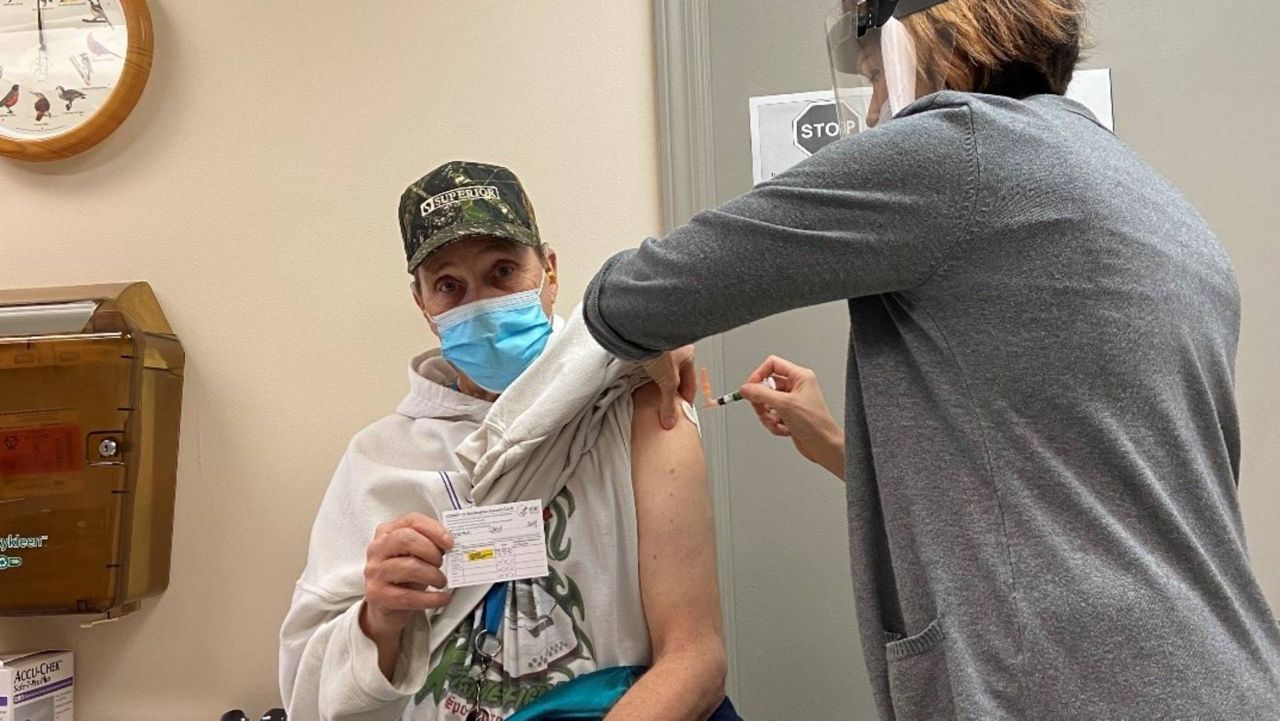LOUISVILLE, Ky. — When COVID-19 vaccines first arrived at the Lake Cumberland District Health Department (LCDHD) in early February, demand was so high that officials opened 30 phone lines to help nearby Kentuckians make appointments. Over the next six weeks, LCDHD administered nearly 19,000 vaccines doses, while other pharmacies – in the 10 counties it covers – doled out another 15,000.
What You Need To Know
- Some parts of Kentucky are seeing COVID-19 vaccines slow
- Gov. Beshear has been emphasizing available appointments in rural parts of the state
- One health department director says younger people have less urgency to get vaccinated
- Politics and disinformation are also contributing to vaccine hesitancy
In recent days though, LCDHD Executive Director Shawn D. Crabtree had begun to notice a disconcerting trend.
“Whereas two weeks ago there was way more demand than there was supply, now there's beginning to be more supply than there is demand,” he said.
Crabtree’s theory is that as older people have been vaccinated, and appointments have opened to younger people, interest has dipped.
“When you get to the 49 and younger age group, I feel like there's not as much of a sense of urgency because the health outcomes aren't as significant.”
Overall, the state’s vaccination numbers continue to grow week-over-week. On Tuesday, Gov. Andy Beshear said that in the seven days between March 16 and March 22, just over 198,000 Kentuckians received their first dose of a vaccine, a new record.
But there are also indications that appointments are going unfilled across the state. On Thursday, Beshear highlighted four vaccination sites with openings. They were in Marshall, Daviess, Pulaski, and Pike counties. At least one of these locations, Pikeville Medical Center, has opened up appointments to anyone 16 or older.
Beshear also tweeted a link to a map of appointment openings Thursday, along with a plea to anyone who hasn’t yet signed up. “We need you to get out there and take advantage of these vaccination appointments if eligible,” he wrote. “This is the key to crossing the finish line Kentucky.”
The website VaccineSpotter.org, which searches 274 locations of six pharmacy chains across the state, provides more evidence that appointments are going increasingly unfilled in Kentucky. Stores where vaccine appointments are available are represented with a green dot. Those that are booked up get a red dot.
In Kentucky this week, Louisville, Lexington, and Northern Kentucky have been painted red, while the rest of the state was scattered with available appointments.
Last week, Lexington Fayette County Health Department spokesperson Kevin Hall suggested that vaccine hesitancy, rooted in politics, was responsible for increased appointment availability in Fayette County.
“Unfortunately throughout this pandemic, parts of it have been politics,” he told Spectrum News 1. “COVID-19 doesn't care who you voted for. It doesn't care if you voted. It affects everyone."
Recent national polling has shown that people who supported former President Donald Trump in the 2020 election are among the most likely to deny a COVID-19 vaccine. Asked this week about Republican vaccine hesitancy, Beshear praised the willingness of state Republican leaders to be vaccinated. He said he is asking Kentucky’s federal elected officials, all but one of whom are Republicans, for help convincing people to get vaccinated and is continuing to look for local leaders to encourage vaccination.

He also said the Centers for Disease Control and Prevention (CDC) can help get people to sign up by issuing “more guidance about what vaccinated people can do, which would encourage more people who want to do those things to become vaccinated.”
But some Kentuckians will not be convinced by any political endorsement or CDC guidance. One 66-year-old from Lexington, who explained her vaccine opposition on the condition on anonymity, said she does not believe the COVID-19 vaccines are safe.
She cited widely debunked theories that have spread on the internet, including concerns about people who have died “from the vaccine.” In reality, there have been 2,216 reported deaths in vaccinated people as of March 22. But the deaths have not been linked to the vaccines, according to the CDC. Also, many of the first Americans to get vaccinated were elderly, and suffering from other health conditions.
A political independent, the woman said her opposition to the vaccine is not based in politics, but stems from a general distrust of pharmaceutical companies and the mainstream media, which she said she doesn't pay attention to.
Despite her age putting her at higher risk than most, she said she would "never" considering getting a COVID-19 vaccine. "Not ever," she said. "I've heard too many stories."



